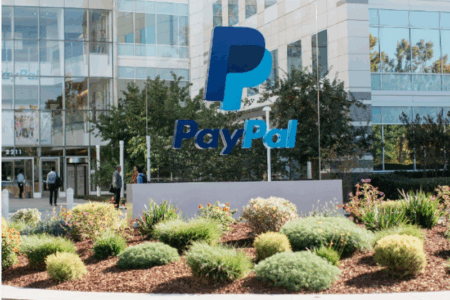There seems to be a lot of concern surrounding Zoom’s rising stock-based compensation (SBC).
In its financial years 2021, 2022 and 2023, Zoom recorded SBC of US$275 million, US$477 million and US$1,285 million, respectively. FY2023 was perhaps the most worrying for investors as Zoom’s revenue essentially flat-lined while its SBC increased by more than two-fold.
But as mentioned in an earlier article, GAAP accounting is not very informative when it comes to SBC. When companies report SBC using GAAP accounting, they record the amount on the financial statements based on the share price at the time of the grant. A more informative way to look at SBC would be from the perspective of the actual number of shares given out during the year.
In FY2021, 2022 and 2023, Zoom issued 0.6 million, 1.8 million and 4 million restricted stock units (RSUs), respectively. From that point of view, it seems the dilution is not too bad. Zoom had 293 million shares outstanding as of 31 January 2023, so the 4 million RSUs issued resulted in only 1.4% more shares.
What about down the road?
The number of RSUs granted in FY2023 was 22.1 million, up from just 3.1 million a year before. The big jump in FY2023 was because the company decided to give a one-time boost to existing employees.
However, this does not mean that Zoom’s dilution is going to be 22 million shares every year from now. The number of RSUs granted in FY2023 was probably a one-off grant that will likely not recur and these grants will vest over a period of three to four years.
If we divide the extra RSUs given in FY2023 by their 4-year vesting schedule, we can assume that around 8 million RSUs will vest each year. This will result in an annual dilution rate of 2.7% based on Zoom’s 293 million shares outstanding as of 31 January 2023.
Bear in mind: Zoom guided for a weighted diluted share count of 308 million for FY2024. This diluted number includes 4.8 million in unexercised options that were granted a number of years ago. Excluding this, the number of RSUs that vest will be around 10 million and I believe this is because of an accelerated vesting schedule this year.
Cashflow impact
Although SBC does not result in a cash outflow for companies, it does result in a larger outstanding share base and consequently, lower free cash flow per share.
But Zoom can offset that by buying back its shares. At its current share price of US$69, Zoom can buy back 8 million of its shares using US$550 million. Zoom generated US$1.5B in free cash flow if you exclude working capital changes in FY2023. If it can sustain cash generation at this level, it can buy back all its stock that is issued each year and still have around US$1 billion in annual free cash flow left over for shareholders.
And we also should factor in the fact that in most companies, due to employee turnover, the RSU forfeiture rate is around 20% or more, which will mean my estimate of 8 million RSUs vesting per year for Zoom could be an overestimate. In addition, Zoom reduced its headcount by 15% in February this year, which should lead to more RSU forfeitures and hopefully fewer grants in the future.
Not as bad as it looks
GAAP accounting does not always give a complete picture of the financial health of a business. In my view, SBC is one of the most significant flaws of GAAP accounting and investors need to look into the financial notes to better grasp the true impact of SBC.
Zoom’s SBC numbers seem high. But when zooming in (pun intended), the SBC is not as bad as it looks. In addition, with share prices so low, it is easy for management to offset dilution with repurchases at very good prices. However, investors should continue to monitor share dilution over time to ensure that management is fair to shareholders.
Note: An earlier version of this article was published at The Good Investors, a personal blog run by our friends.
The future of Artificial Intelligence (AI) is upon us, and it has never been more important to understand its progress. We’ve just released an urgent Special Free Report that explores all the opportunities and dangers of AI. Discover the steps you must take to prepare your portfolio for the inevitable AI boom. Click here to download the complimentary report now.
Follow us on Facebook and Telegram for the latest investing news and analyses!
Disclosure: Jeremy Chia owns shares of Zoom Video.




